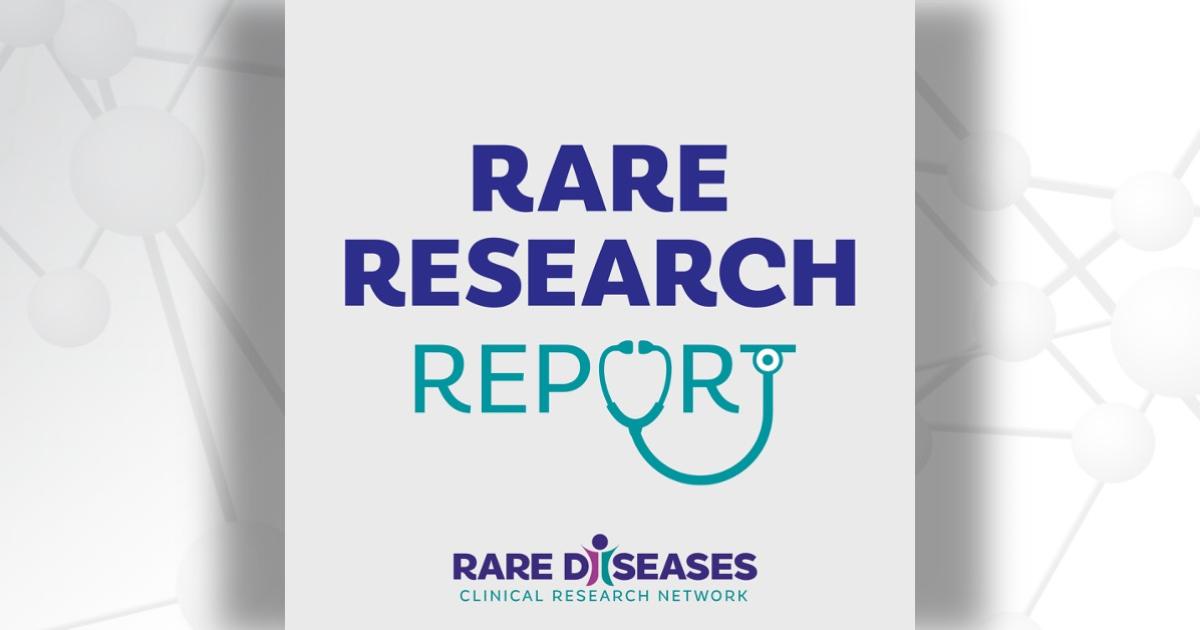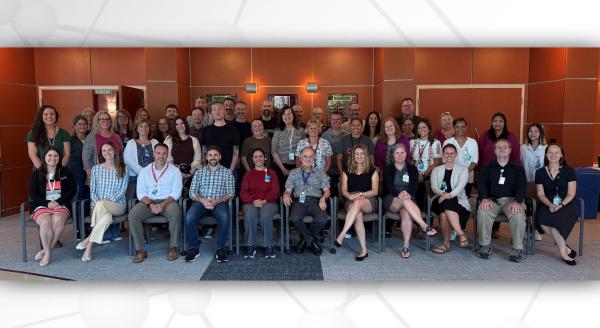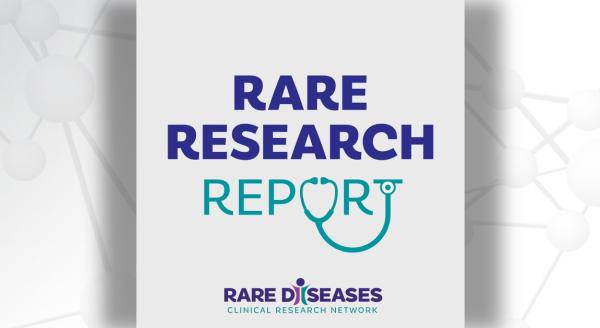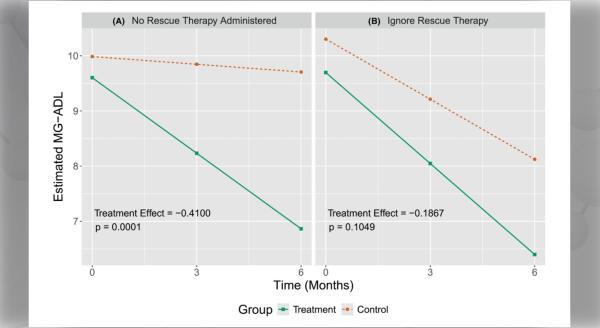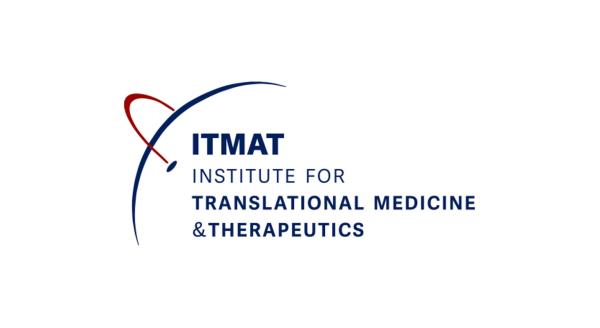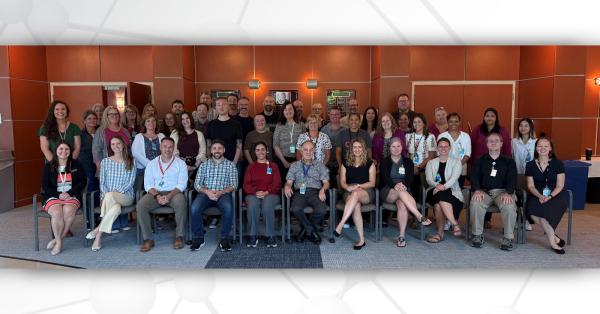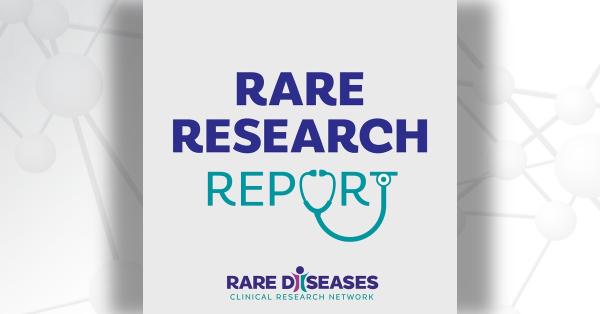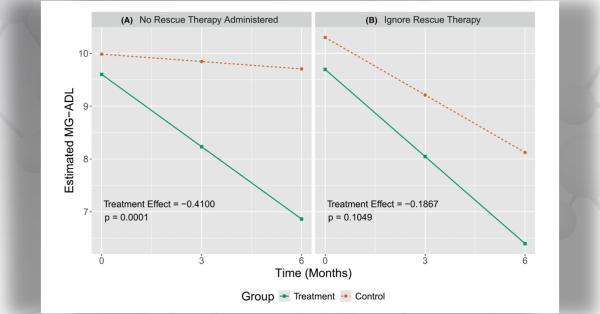Each month, we share summaries of recent Rare Diseases Clinical Research Network (RDCRN) grant-funded publications. Catch up on the latest RDCRN research below.
Jump to:
- Brittle Bone Disorders Consortium (BBDC)
- Frontiers in Congenital Disorders of Glycosylation Consortium (FCDGC)
- Inherited Neuropathy Consortium (INC)
- Lysosomal Disease Network (LDN)
- Myasthenia Gravis Rare Disease Network (MGNet)
Listen to these summaries on the Rare Research Report podcast.
Brittle Bone Disorders Consortium (BBDC)
Exploring Caregiver Experiences, Social Support, and Impact on Family Life in Osteogenesis Imperfecta
Osteogenesis imperfecta (OI) is a group of inherited connective tissue disorders associated with a wide range of symptoms, including fragile bones that break easily. Not much is known about the psychosocial impact of OI during childhood on caregivers and families.
In this study, researchers explored caregiver experiences, existing social support provided for families affected by OI, and the impact of OI on family life. The team analyzed survey responses from 13 caregivers of individuals with OI to develop themes on the psychosocial impact of OI on the family unit.
Results revealed four themes, including encountering difficult experiences during diagnosis of OI, caregiver well-being and coping, broad family impact, and the existence and further need for social support. Authors note that these findings have implications for child and caregiver well-being and health care professionals during diagnosis, as well as emphasize the need for social support for families affected by OI.
Colombo GM, Wiese AD, Mercado AE, Shepherd WS, Fynan M, Ayers K, Rork WC, Kostick-Quenet KM, Nguyen D, Schneider SC, Morales JM, Kazimi SI, Cho HE, Members Of The Bbdc, Murali CN, Robinson ME, Lee B, Sutton VR, Storch EA. Osteogenesis imperfecta and the family: A qualitative analysis of the experiences of family and caregivers. Fam Syst Health. 2025 Jul 10:10.1037/fsh0001004. doi: 10.1037/fsh0001004. Epub ahead of print. PMID: 40638332; PMCID: PMC12252216.
Frontiers in Congenital Disorders of Glycosylation Consortium (FCDGC)
Diagnosing a New Case of Mannosyl-Oligosaccharide Glucosidase-Congenital Disorder of Glycosylation
Congenital disorders of glycosylation (CDG) are a large group of rare, inherited disorders that affect a complex process in the body called glycosylation. Mannosyl-oligosaccharide glucosidase (MOGS)-CDG is a very rare type of CDG caused by mutations in the MOGS gene.
In this journal article, researchers describe the diagnosis of a new case of MOGS-CDG. The 40-year-old male patient presented with symptoms including pan-hypogammaglobulinemia (low immunoglobulin levels). Researchers performed several tests, including an immune genetic disease gene panel and N-glycan analysis. Results confirmed a diagnosis of MOGS-CDG.
Wazeerud-Din IJ, Wong DA, Zhang W, Kuo CY, He M. Congenital Disorder of Glycosylation in a 40-Year-Old Male with Hypogammaglobulinemia. Clin Chem. 2025 Jul 4;71(7):821-823. doi: 10.1093/clinchem/hvaf048. PMID: 40613798; PMCID: PMC12231354.
Inherited Neuropathy Consortium (INC)
Investigating the Correlation Between Disease Severity and Genetic Variants in Charcot-Marie-Tooth Disease Type 1E
Charcot-Marie-Tooth disease type 1E (CMT1E) is a neuromuscular disorder that affects the peripheral nerves of the feet and hands, leading to neuropathy. Since CMT1E is caused by different kinds of variants in the PMP22 gene, patients can experience a spectrum of mild to severe symptoms. Not much is known about the natural history and symptom progression among these individuals.
In this study, researchers investigated the correlation between disease severity and genetic variants in CMT1E. First, the team evaluated patients with CMT1E during initial and follow-up visits at sites within the Inherited Neuropathy Consortium, documenting clinical characteristics and evaluating changes over time. Next, researchers correlated PMP22 variants with disease severity.
Results revealed 24 likely disease-causing PMP22 variants among 50 individuals. The team found that reduced expression of PMP22 at the cell surface—and the location of missense variants within the transmembrane domain—correlated with disease severity. In addition, pathogenic PMP22 variants located within the transmembrane regions were often found to cause moderate to severe disease beginning in early childhood, impairing trafficking to the plasma membrane.
Ward KS, Ptak CP, Pashkova N, Grider T, Peterson TA, Pareyson D, Pisciotta C, Saveri P, Moroni I, Laura M, Burns J, Menezes MP, Cornett K, Finkel R, Mukherjee-Clavin B, Sumner CJ, Greene M, Abdul Hamid O, Herrmann D, Sadjadi R, Walk D, Züchner S, Reilly MM, Scherer SS; Inherited Neuropathy Consortium; Piper RC, Shy ME. Charcot-Marie-Tooth disease type 1E: clinical natural history and molecular impact of PMP22 variants. Brain. 2025 Jun 9:awaf219. doi: 10.1093/brain/awaf219. Epub ahead of print. PMID: 40488457.
Lysosomal Disease Network (LDN)
Evaluating Health-Related Quality of Life and Family Function in CLN3 Disease
CLN3 disease, also known as Batten disease, is an inherited neurodegenerative disorder that typically starts in childhood. Because CLN3 disease is progressive and fatal, it is likely to affect the health-related quality of life (HRQOL) of both the child and the family.
In this study, researchers evaluated the HRQOL and family function in individuals with CLN3 disease and their families. The team analyzed data from 71 participants who completed assessments on the child HRQOL and family impact. In 21 of these participants, the team also analyzed Unified Batten Disease Rating Scale responses.
Results showed an association between worse child HRQOL and more severe disease symptoms, including physical impairment and functional capability. However, family impact severity was not associated with CLN3 disease symptom severities. While child HRQOL worsened over time, family impact did not significantly change over time. Authors note that these findings may provide important information for clinical care and trial design in CLN3 disease.
Vermilion J, Augustine EF, Mink JW, McDermott MP, Vierhile A, Pereira-Freitas M, Adams HR. Impact of CLN3 Disease on Child Quality of Life and Family Function. Pediatr Neurol. 2025 Jun 16;170:17-25. doi: 10.1016/j.pediatrneurol.2025.06.008. Epub ahead of print. PMID: 40602048; PMCID: PMC12236447.
Myasthenia Gravis Rare Disease Network (MGNet)
Validating the Patient-Acceptable Symptom State (PASS) Question in Acetylcholine Receptor Myasthenia Gravis
Myasthenia gravis (MG) is a neuromuscular disorder caused by an autoimmune response which blocks or damages acetylcholine receptors in muscles, causing disabling weakness. New treatments have recently emerged for acetylcholine receptor (AChR) antibody-positive MG (AChR-MG). However, not all patients experience significant improvement, highlighting the importance of including the patient perspective in outcome evaluations.
In this study, researchers validated the Patient-Acceptable Symptom State (PASS) question as an outcome measure in AChR-MG. The team analyzed PASS responses among 173 patients with AChR-MG.
Results confirmed the PASS question as an effective, concise tool to assess AChR-MG patients' satisfaction with their disease control. Authors note that these findings also highlight the relevance of ocular complaints in patients' perception of MG burden.
Spagni G, Verza MU, Cornacchini S, Beretta F, Sun B, Lotti A, Falso S, Barilaro A, Massacesi L, Evoli A, Damato V. Validation of the "Patient-Acceptable Symptom State" Question as Outcome Measure in AChR Myasthenia Gravis: A Multicentre, Prospective Study. Eur J Neurol. 2025 Jun;32(6):e70262. doi: 10.1111/ene.70262. PMID: 40556475; PMCID: PMC12188101.
The Rare Diseases Clinical Research Network (RDCRN) is funded by the National Institutes of Health (NIH) and led by the National Center for Advancing Translational Sciences (NCATS) through its Division of Rare Diseases Research Innovation (DRDRI). Now in its fourth five-year funding cycle, RDCRN is a partnership with funding and programmatic support provided by Institutes, Centers, and Offices across NIH, including the National Institute of Neurological Disorders and Stroke, the National Institute of Allergy and Infectious Diseases, the National Institute of Diabetes and Digestive and Kidney Diseases, the Eunice Kennedy Shriver National Institute of Child Health and Human Development, the National Institute of Arthritis and Musculoskeletal and Skin Diseases, the National Heart, Lung, and Blood Institute, the National Institute of Dental and Craniofacial Research, the National Institute of Mental Health, and the Office of Dietary Supplements.

